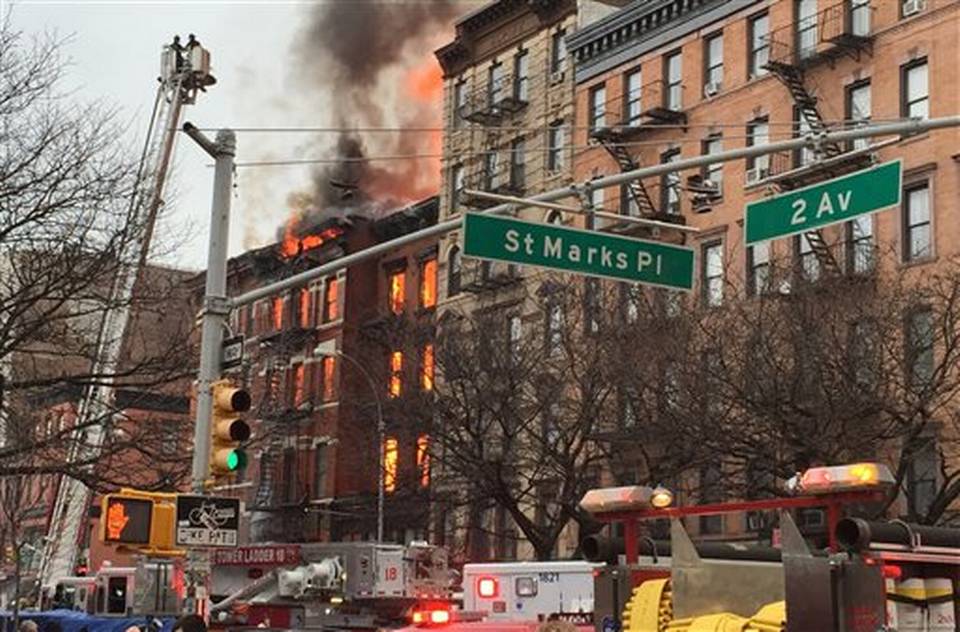Letter from the Chief-Natural Gas Emergencies
Thursday, April 2, 2015
 FNDY operations at the scene of a natural gas caused fire and partial building collapse on 3/26/15. (Photo: AP) FNDY operations at the scene of a natural gas caused fire and partial building collapse on 3/26/15. (Photo: AP)
The tragic explosion and building collapse in Manhattan last week reminds us of the dangers of natural gas. Although many homes in the Halesite area are heated by natural gas, very few people truly understand the product and its volatility. Here are some ideas to help keep you safe.
Natural gas is delivered to homes through underground pipes. While rare, natural gas line leaks can be extremely dangerous. The most telling sign of a natural gas line leak is the familiar rotten egg odor. This odor is added to the natural gas so it can be detected in the event of a leak. Remember, a Carbon Monoxide detector will NOT be activated by a natural gas leak, so the only way to know you have a leak is by the smell.
The biggest hazard of a gas leak is an explosion. When natural gas builds up in an enclosed area, it becomes extremely volatile. A gas build up has the potential to be explosive, or could make those in the area very sick. Gas leaks inside the home can be easily prevented by ensuring flexible gas lines are inspected regularly and installed properly by licensed professionals.
Gas leaks outside the home are dangerous as well. Most gas lines coming into the home are buried underground. Before doing any job that requires digging outside, (digging for a new mailbox post, fence post or planting a new tree) homeowners should call 8-1-1 at least 48 hours before digging. National Grid will be contacted and asked to mark the lines they own. After the lines have been marked safe, careful digging can begin.
If you detect a strong gas odor, follow these tips:
. Do not attempt to locate the leak.
. Do not turn any electrical appliances on or off.
. Do not smoke or use any open flames.
. Leave the house and, from a safe distance, call 9-1-1.
. If a natural gas line is damaged, call the utility immediately. Do not attempt to repair the line.
By following these safety tips, natural gas can continue to be a safe and efficient source of energy for the home.
Stay Safe!
Dan McConnell
Chief of Department
|
 |
|



|
|
CALENDAR OF EVENTS
|
<< | Monday, February 16, 2026 | >> |
|
|
|
|
|
|
QUESTIONS FOR THE CHIEF? |
| The Chief is always available to answer any Halesite FD and saftey questions...click here. |
|
|
|
|
|
JOIN OUR EMAIL NEWSLETTER |
|
|
|
| Receive important notices about fire safety, upcoming events, and other important information about the Halesite Fire Department. |
|
|